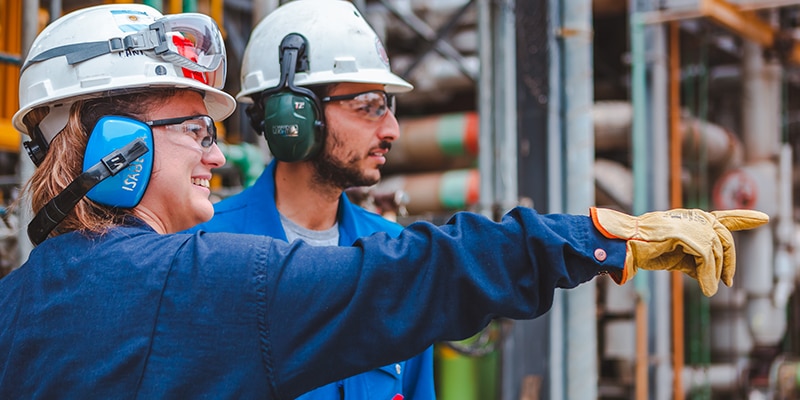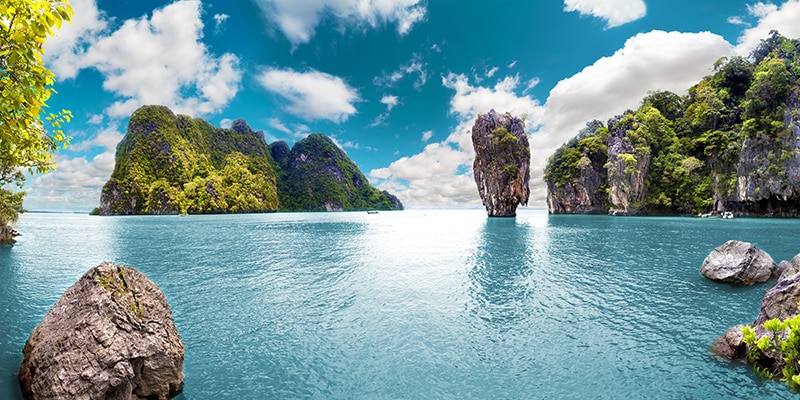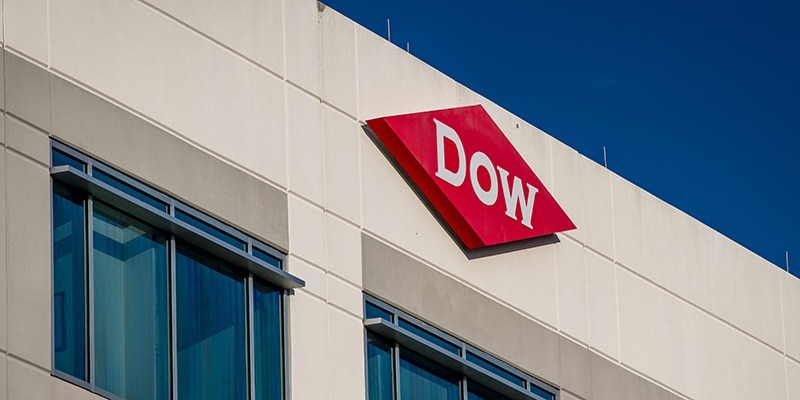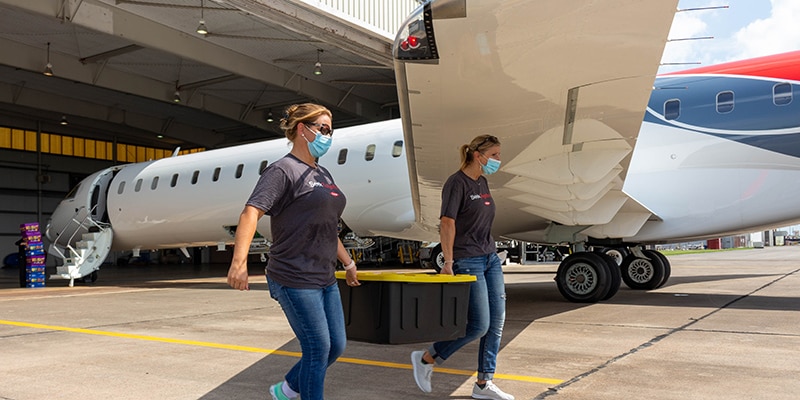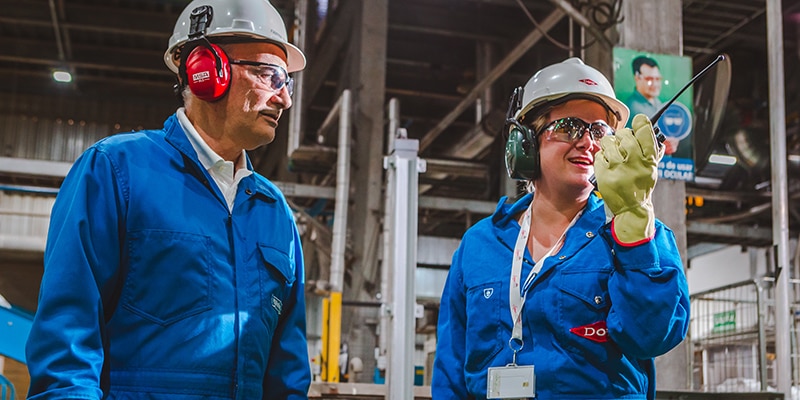- Project Ybá: conservation that transforms promotes the development of local communities in Breu Branco, Pará, Brazil through the commercialization of non-timber resources, while contributing to conservation of the Amazon Rainforest.
- The project includes a study to map the biodiversity housed in the preserved Dow-owned area of the native forest to identify the species of interest to the market, such as the personal care industry.
- This initiative will receive an investment of R$ 1 million (~US$ 200,000) and will be implemented in partnership with the Peabiru Institute.
- The project also involves a collaboration with The Nature Conservancy (TNC) NGO to measure the environmental services offered to the community.
São Paulo, May 13, 2021 - Dow, in collaboration with the Peabiru Institute and The Nature Conservancy (TNC), launches project Ybá: conservation that transforms, which aims to enhance conservation of the Amazon Rainforest.
Through a partnership with the Peabiru Institute, Dow will work to empower communities in Breu Branco, Pará, Brazil to foster social development through sustainable extraction of non-timber resources in the Amazon forest, enabling the supply of bioactive products for the personal care industry. TNC will provide measurements of the environmental services – such as temperature regulation and water preservation – that benefit the community through Dow’s preserved areas.
Dow has a manufacturing complex in Breu Branco that includes the sustainable management of planted forests, a carbonization plant and the production of silicon metal, the main raw material used in silicone production. Integrated with a global value chain in Dow Consumer Solutions’ silicone business, the site holds a unique position in this business segment.
Palmyra Recursos Naturais (Palmyra Natural Resources), Dow's subsidiary in the region and a model in sustainable practices, owns about 112,000 acres of land, with 80% of the total area composed of preserved native forests. The project Ybá: conservation that transforms will be carried out in this environment, receiving an investment of R$ 1 million (~US$ 200,000) to empower the local community.
“Our operation in Breu Branco is a global model in sustainable silicon metal production. Forest resources are used in a sustainable manner, respecting forest life cycles and the maintenance of native species, contributing towards the conservation of local biodiversity. This project will contribute to the social development of the community through the identification and sale of bioactive products for the personal care industry that can increase the income of families, without neglecting the conservation of the rainforest,” explains Javier Constante, president of Dow in Latin America.
The silicon metal produced in Breu Branco is supplied to Dow sites globally; part of it is returned as silicone to the Hortolândia plant in São Paulo, where Dow produces high-value specialty silicone products. Dow silicones benefit over 25,000 customers worldwide in various applications, such as: personal care, home care, building & infrastructure, mobility & transportation, consumer & electronics, etc.
Partners’ Roles
To make the project Ybá feasible, Dow has teamed up with two major collaborators: the Peabiru Institute and The Nature Conservancy (TNC). It is estimated that by 2022, communities will be able to sell non-timber forest products that may be of interest to the market, such as the personal care industry.
The Peabiru Institute will complete mapping of the local biodiversity present in Dow’s preserved areas of the Amazon forest to identify species of interest and to enable residents in the Breu Branco region to form a cooperative aimed at developing the expertise needed to provide bioactives to the personal care industry. “As a Pará organization, for us at the Peabiru Institute, it is essential to be part of forest conservation initiatives that strive to enhance natural resources, while generating income for traditional communities in the Amazon. These non-timber resources, such as seeds and fruits, enable organized communities to achieve autonomy by accessing markets, while exercising their role as guardians of Amazonian biodiversity,” says João Meirelles, Peabiru Institute Director.
TNC, which has been collaborating with Dow for over 10 years in projects that value nature around the world, will contribute with its expertise in measuring ecosystem services – such as temperature regulation and water preservation – that benefit the community through Dow’s preserved areas.
“Dow has supported a series of educational programs to benefit the Breu Branco community and we remain committed to performing alongside our customers, partners and suppliers to empower the communities where we operate and drive sustainable development. Through projects such as Ybá, we have a unique opportunity to generate even more positive social and environmental impacts on the communities close to our plants,” highlights Flávia Venturoli, Latin America Commercial Director for Dow Consumer Solutions.
The project Ybá: conservation that transforms project was selected as part of the Dow Business Impact Fund program, which elects initiatives that address social and sustainability problems. Since its launch in 2016, the fund has allocated approximately US$ 5.8 million to 35 initiatives. In 2020, Latin America had a historic participation and obtained more resources than other regions, with 3 projects being chosen.
ESG Strategy
Dow’s ambition is to become the most innovative, inclusive, customer-centric, and sustainable materials science company in the world. For this reason, the ESG pillars (Environment, Social and Governance) permeate its entire business strategy. Among the targets for its Sustainability Goals, three objectives stand out: to achieve carbon neutrality by 2050; to invest in the development of technologies and processes so that 1 million tons of plastic are collected, reused or recycled by 2030; and to offer 100% reusable or recyclable products in packaging applications by 2035.
The company invests in low carbon technology, energy efficiency projects and green logistics; develops products and solutions with a focus on circular economy and efficient waste management through inclusive recycling; and further seeks to improve its portfolio to deliver sustainable alternatives to the market. “In Latin America, we want to prosper through collaboration with the value chain and with the main stakeholders in the search for innovative solutions to protect the climate, boost the circular economy and offer safer materials,” says Javier Constante.
About Dow
Dow (NYSE: DOW) combines global breadth, asset integration and scale, focused innovation and leading business positions to achieve profitable growth. The Company’s ambition is to become the most innovative, customer centric, inclusive and sustainable materials science company, with a purpose to deliver a sustainable future for the world through our materials science expertise and collaboration with our partners. Dow’s portfolio of plastics, industrial intermediates, coatings and silicones businesses delivers a broad range of differentiated science-based products and solutions for its customers in high-growth market segments, such as packaging, infrastructure, mobility and consumer care. Dow operates 106 manufacturing sites in 31 countries and employs approximately 35,700 people. Dow delivered sales of approximately $39 billion in 2020. References to Dow or the Company mean Dow Inc. and its subsidiaries. For more information, please visit www.dow.com or follow @DowNewsroom on Twitter.
About Peabiru Institute
The Peabiru Institute is a Pará Public Interest Civil Society Organization (OSCIP) from Pará, founded in 1998, whose mission is to promote the role of social groups in the Amazon to promote full access to their fundamental rights. Headquartered in Belém, it operates nationwide, especially in the Amazon biome, with an emphasis on Marajó, Northeast Paraense and the Metropolitan Region of Belém (PA). It operates in several stages of biodiversity value chains, such as stingless honey and açaí, and in supporting family farming for participatory territorial development.
About The Nature Conservancy
The Nature Conservancy is a global conservation organization dedicated to conserving the lands and waters on which all life depends. Guided by science, we create innovative, on-the-ground solutions to our world's toughest challenges so that nature and people can thrive together. We are tackling climate change, conserving lands, waters and oceans at an unprecedented scale, providing food and water sustainably and helping make cities more sustainable. Working in 72 countries and territories: 38 by direct conservation impact and 34 through partners, we use a collaborative approach that engages local communities, governments, the private sector, and other partners. To learn more, visit www.nature.org or follow @nature_press on Twitter.
For further information:
Adriana Alves
+55 (11) 94342-2473
AdAlves@dow.com

